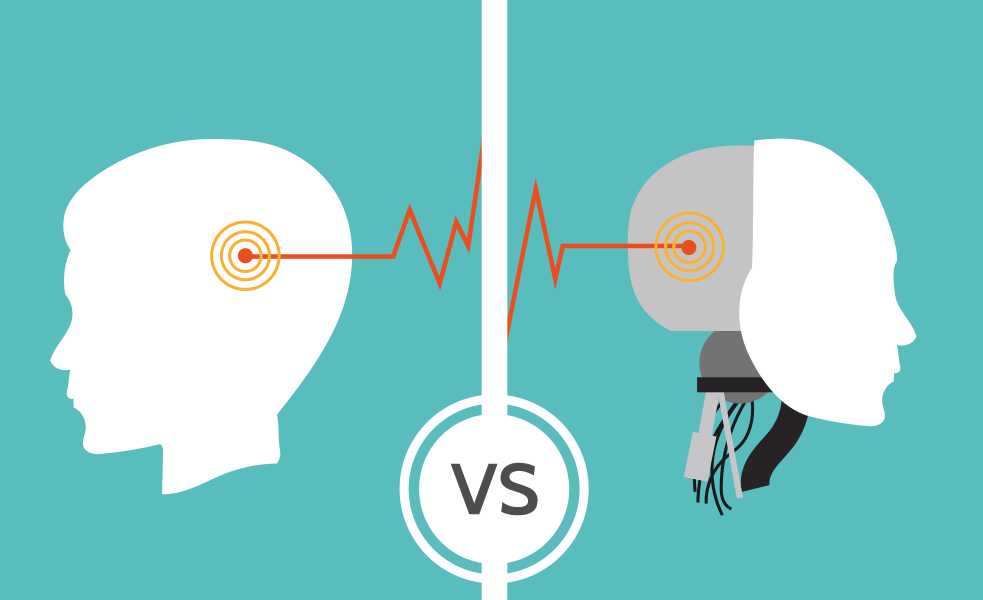|
Artificial Intelligence vs. Human Intelligence in Healthcare Investing in AI can not only provide proactive healthcare, it has the potential to predict and prevent conditions from occurring. This is vital in driving our recovery from the COVID-19 pandemic. Disruption and data are essential ingredients in transforming healthcare and AI supports humans to achieve better results. As our population becomes older, the use of AI will improve outcomes and reduce costs, both are essential ingredients for any healthcare provider managing MSK conditions. But there’s no getting away from the fact that AI is impacting on more and more aspects of our lives as time moves on. In some ways its application is obvious, in others — much less obvious. When it comes to the use of AI in healthcare, people tend to be skeptical. It’s to be expected that someone who is suffering pain imagines themselves being assessed by a smiling, alert, caring professional who gives them their full attention and finds the ideal solution quickly. For many, getting in front of a machine and telling it your symptoms, just doesn’t cut it. Yet digital health is available to patients at a time, place and convenience that fits within their lifestyles, this enables rapid care. These tools collect information to support clinicians and do not replace face-to-face treatment — could this be the best of both worlds? AI enabled healthcare technologies offer rapidly available advice to rich and poor equally But like any change, disruptive or otherwise, the journey from where we are now to where we will be in 1, 3, 5 or 10 years’ time isn’t one almighty leap, it’s a series of small steps. The use of AI in healthcare is no different. It is a journey rather than a destination that people can be dropped into from a high height. We believe that the upsides of AI will continue to be eased into appropriate aspects of healthcare, adding real and tangible value to patient and provider. And what’s more, if it’s done in the right way, patients won’t only accept it, they’ll embrace it and see it for the real value it brings. That’s what we at PhysioWizard have as our vision. Here’s why… Software screening systems reduce costs and increase accuracy Using software to quickly screen numerous signs and symptoms that would be impossible to condense into a clinical consultation is a great way that AI brings benefits to everyone concerned i.e. the clinician and the patient. Not only does the use of AI in this setting mean that the outcomes are more consistent, this enables the medical assessment to become standardised, it also means that the cost of people-intensive triage can be reduced significantly. We know that with the right programming, software-as-a-service has the ability to assess combinations of symptoms and to identify conditions more accurately than real people. And it is easier to update. What’s to be frightened of there? Face-to-face and virtual/telephone triage are limiting The quality of diagnoses delivered by clinicians relies on the practitioner’s experience and time. They need to be up to date, be in the right frame of mind every time, and they need to be on the ball. But they are human. Because of the variety of conditions which are influenced by lifestyle factors, human error can be significant. Sending the patient down the wrong route could result in the patient seeing the wrong healthcare professional. This wastes time, costs money and leads to the wrong outcomes, which may lead to more chronic symptoms. Machines don’t make these types of mistakes. The best of both worlds As we see it, the main challenge in increasing acceptance of AI in healthcare is creating the right interaction between software and patient - an interaction that mimics a human clinical assessment. Ever aware of the journey that the patient needs to take, the software needs to ease the patient into a place of comfort. What’s more the software needs to take into account that every patient is different and the best systems will be those that are personalised, with conversational questions supported by an enormous set of data which identify the information needed. This ‘best world’ is probably a whole lot closer than we dare to think AI is slowly affecting more and more people’s lives and being embraced by more and more willingly. What this means is that the positive effects of AI on healthcare outcomes, as well as costs is probably a whole lot closer than any of us care to imagine. Interested in finding out more about the ways that PhysioWizard can significantly reduce your costs as an Occupational Health Services Provider, Health Insurance Company or Public Healthcare organisation?
0 Comments
|





